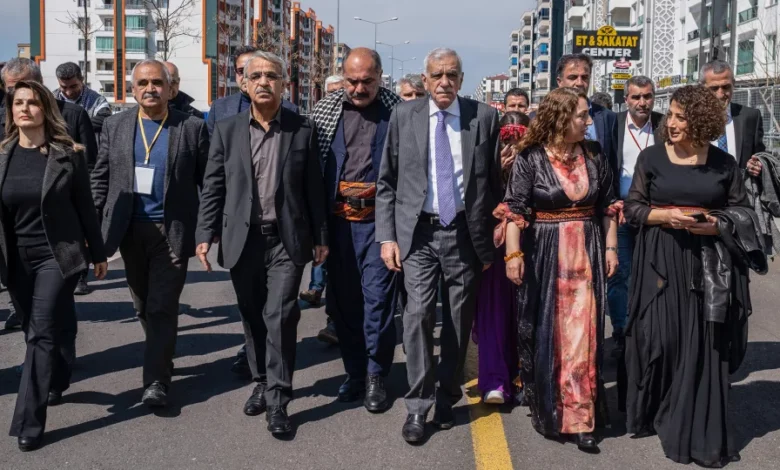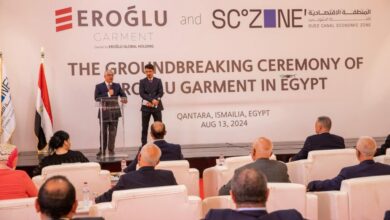
In a key setback to the Turkish president and leader of the Justice and Development Party (AK Party), the pro-Kurdish Peoples’ Democratic Party (HDP) last month announced that it would not put forward its own presidential candidate, a move analysts say allows its supporters to vote for Erdogan’s main rival.
“We are facing a turning point that will shape the future of Turkey and (its) society,” said the HDP in a statement on March 23. “To fulfill our historical responsibility against the one-man rule, we will not field a presidential candidate in (the) May 14 elections.”
It is a twist of irony for the Turkish strongman, who spent the better half of the past decade cracking down on the party after it began chipping away at his voter base. Its former leader Selahattin Demirtas has been in prison for nearly seven years and the party faces possible closure by a court for suspected collusion with the militant Kurdistan Workers’ Party (PKK) and affiliated groups. But its influence may nonetheless determine the course of Turkey’s politics.
The HDP’s decision not to field a candidate came just three days after head of the Republican People’s Party (CHP) Kemal Kilicdaroglu, Erdogan’s main rival, visited the party’s co-chairs. He told reporters that the solution to Turkey’s problems, “including the Kurdish problem” lies in parliament,” according to Turkish media.
Kilicdaroglu, who represents the six-party Nation Alliance opposition bloc, is the strongest contender to run against Erdogan in years. And while the HDP hasn’t yet announced whether it will put its weight behind him, analysts say it is the kingmaker in the elections.
“It was a carefully crafted political discourse,” Hisyar Ozsoy, deputy co-chair of the HDP and a member of parliament from the predominantly Kurdish province of Diyarbakir, told CNN. “We are not going to have our own candidate, and we will leave it to the international community to interpret it the way they wish.”
Experts say the crackdown on the HDP is rooted in the threat it poses to Erdogan politically, as well as its position as one of the main parties representing Turkey’s Kurds, an ethnic minority from which a separatist militant movement has emerged.
The party and the Kurdish people have had a complicated relationship with Erdogan. The leader courted the Kurds in earlier years by granting them more rights and reversing restrictions on the use of their language. Relations with the HDP were also cordial once, as Erdogan worked with the party on a brief peace process with the PKK.
But ties between Erdogan and the HDP later turned sour, and the HDP fell under a sweeping crackdown aimed at the PKK and their affiliates.
Kurds are the biggest minority in Turkey, making up between 15% and 20% of the population, according to Minority Rights Group International.
It is unclear if the HDP will endorse Kilicdaroglu, but analysts say that the deliberate distance may be beneficial for the opposition candidate.
Precarious position
The accusations against the HDP place it in a precarious position during the elections. It currently faces a case in Turkey’s Constitutional Court over suspected ties to the PKK, which is designated as a terrorist group by Turkey, the United States and the European Union. Knowing it may be banned at any moment, its candidates are running under the Green Left Party in parliament.
If the opposition is seen as allying with the HDP, Erdogan’s AK Party may use its influence in the media to discredit it as being pro-PKK, said Murat Somer, a political science professor at Koc University in Istanbul and author of Return to Point Zero, a book on the Turkish-Kurdish question in Turkey.
The HDP’s threat to Erdogan’s hold on power became apparent after the June 2015 election, the first general election it participated in. It won 13% of the seats, denying the ruling AK Party its majority for the first time since 2002. Erdogan, however, called a snap election five months later, which led to a drop in the HDP’s support to 10.7%, as well as the restoration of the AK Party’s overall majority.
“They are a kingmaker in these elections because the HDP gets about half of the votes of the Kurdish population in Turkey,” said Somer, adding that the other, more conservative Kurdish voters have traditionally voted for Erdogan’s AK Party. And last month, the Free Cause Party (HUDA-PAR), a tiny Kurdish-Islamist party announced support for Erdogan in the elections. The party has never won seats in parliament.
The HDP knows that its position is key to the outcome of next month’s vote, but that it’s also in a delicate situation.
“We want to play the game wisely, and we need to be very careful,” said Ozsoy, adding that the party wants to avoid a “contaminated political climate” where the elections are polarized “between a very ugly ultra-nationalist discourse against Kilicdaroglu and others.”
The party was founded in 2012 with a number of aims, said Ozsoy, one of which was “peaceful and democratic resolution of the Kurdish conflict.”
Somer said that the party was seen to be “an initiative” of the PKK, which later led to a heavy government crackdown on it in the name of counterterrorism.
Its former leader Demirtas remains an influential figure.
The Turkish government has been trying to link the HDP to the PKK but has so far failed to prove “a real connection,” said Asli Aydintasbas, a visiting fellow at the Brookings Institution in Washington, DC.
A post-Erdogan Turkey may give some breathing space to the Kurds and Kurdish-dominated parties in Turkey, Aydintasbas told CNN, noting that many Kurdish voters have recently left Erdogan’s camp. “For HDP, this is more than just an ideological choice,” she said. “It’s a matter of survival.”
Ozsoy says his party understands what’s at stake, not only for Turkey’s Kurds but for all its minorities.
“We are aware of our responsibility here. We are aware of our role. We know we are in a kingmaker position,” the HDP lawmaker said.




